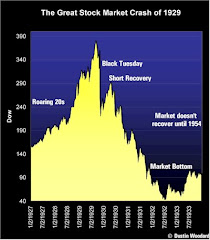The debate in Whitehorse has centered on a fair retirement strategy for all Canadians.
The problem with a debate on pensions is that most taxpayers will never have a pension. Any move to bolster pensions will only pour more money into plans that only benefit Canada's pension elites.
These pension elites works mainly for government. This includes all levels of government municipal, government and federal. Most will receive a pension based on 70% of their final earnings. They will receive these pensions as early as age 50. These pensions will be paid out at a level higher than their earnings for most of their career.
Best of all these pensions are guaranteed by taxpayers, most of who have no pensions.
An excellent report in the Toronto Star highlights the problems with Canada's federal pensions. These pensions cover 1.08 million workers. There are other levels of government that offer these same defined benefit pensions. They cover another 2.3 million workers. The pensions of other levels of government are as generous as those of federal employees. However, they are even more poorly funded than the federal pensions.
These pension shortfalls exist despite Canadian taxpayers having funneled billions and billions of dollars into these plans. How big is the liability to taxpayers for all levels of government pensions?
Pension risks by James Daw
Ottawa owes about $198 billion more in pension promises to current and former employees than it has set aside, a paper from the C.D. Howe Institute estimates.
President William Robson and Alexandre Laurin argue the fair value of pension promises is about $58 billion higher than Ottawa has reported.
There are about 1.08 million active and retired civil servants, RCMP, Canadian Forces, Members of Parliament and judges.
Most will collect pensions longer than they worked. If public servants' benefits were calculated the way Robson and Laurin suggest, Ottawa and employees would have to set aside 34 per cent of pay.
But the government did not start setting aside any money until 2000. Until then, it treated the pension promises as debt.
That debt obligation, the authors argue, should be calculated using the investment return paid by inflation-protected, government-backed bonds, not estimated returns from a mix of investments.
"Federal pensions as currently configured are more costly than commonly understood and expose taxpayers, and potentially participants as well, to underappreciated risks," the authors argue. "Reducing or offsetting these costs and reducing these risks should be key elements of a program to restore federal finances to a sustainable position."
James Daw, Toronto Star - Younger workers face retirement shortfall
Showing posts with label public servants. Show all posts
Showing posts with label public servants. Show all posts
Friday, December 18, 2009
Tuesday, August 18, 2009
The Double Dip Party Continues

A news article caught my attention today. Pension + Salary — how’s that for a “retention bonus”?
It is an issue that is rising is concern across the US. My hope is that it will soon be addressed in Canada as well. My recent blog called Canada promotes double dipping covered the basics of the issue.
If you see any Canadian articles about double dipping, please let me know.
Some NY lawmakers collect pension pay and salaries
State Legislators Double-Dip Salaries, Pensions; Lone Holdout Honored
In Utah - Double dippers adding to the pension fund problem?
USA Today - Our view on ‘double dipping’: Public sector ‘retirees’ draw a pension — and a paycheck
Auditor: 'Double dipping' costs Del. $17M a year
Florida limits 'double-dipping' for state workers
Tuesday, January 13, 2009
Public Sector Reform Will Be Tough

The people, not the public sector, are sovereign - Independent of Ireland
At a time when all Canadians are feeling the effects of our current economic situation governments seem reluctant to contribute to our economic recovery.
It is not unrealistic to expect that cutbacks, layoffs and salary reductions should be shared by the public sector. Despite the belief by most taxpayers that changes are necessary, making any substantial changes to government spending seems an impossible task.
There are a couple of good examples of attempts made by governments to control their costs and give taxpayers a break. One of them is the City of St John NB and the other is the country of Ireland.
In St John city spending has been highlighted by a pension issues that has caused grief for taxpayers. You can follow the saga in the link on the sidebar.
Totten gives council what it's looking for
In Ireland the initiative to cut back government spending was as a result of several initiatives over the past few years. A major one was the benchmarking of the public sector to the private sector. The results were the start of bringing public sector benefits and wages back to the level of those in the private sector.
Ireland Public Sector Benchmark Report
The report lead to announcements this week of actual plans for controlling the cost of the public sector.
We Have No Option
Lets hope that these efforts are the start by all levels of government to control government spending and share in the pain to be felt by all taxpayers this year.
Bill Tufts
Subscribe to:
Posts (Atom)


